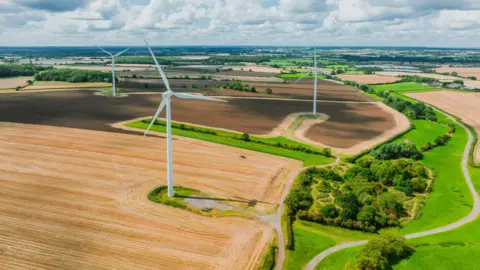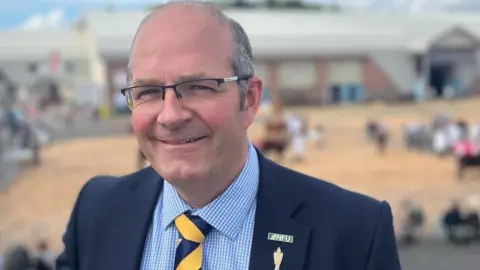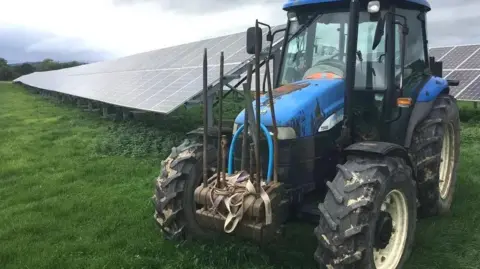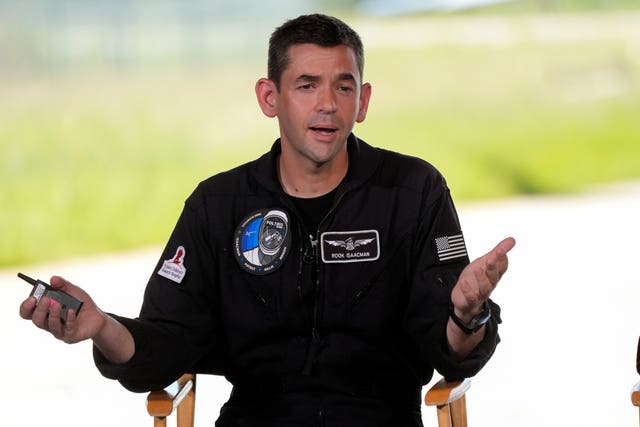As child poverty in the UK remains high, Barnardo's has found 8% of parents have used food banks in the past year
Greg Barradale
11 Sep 2024
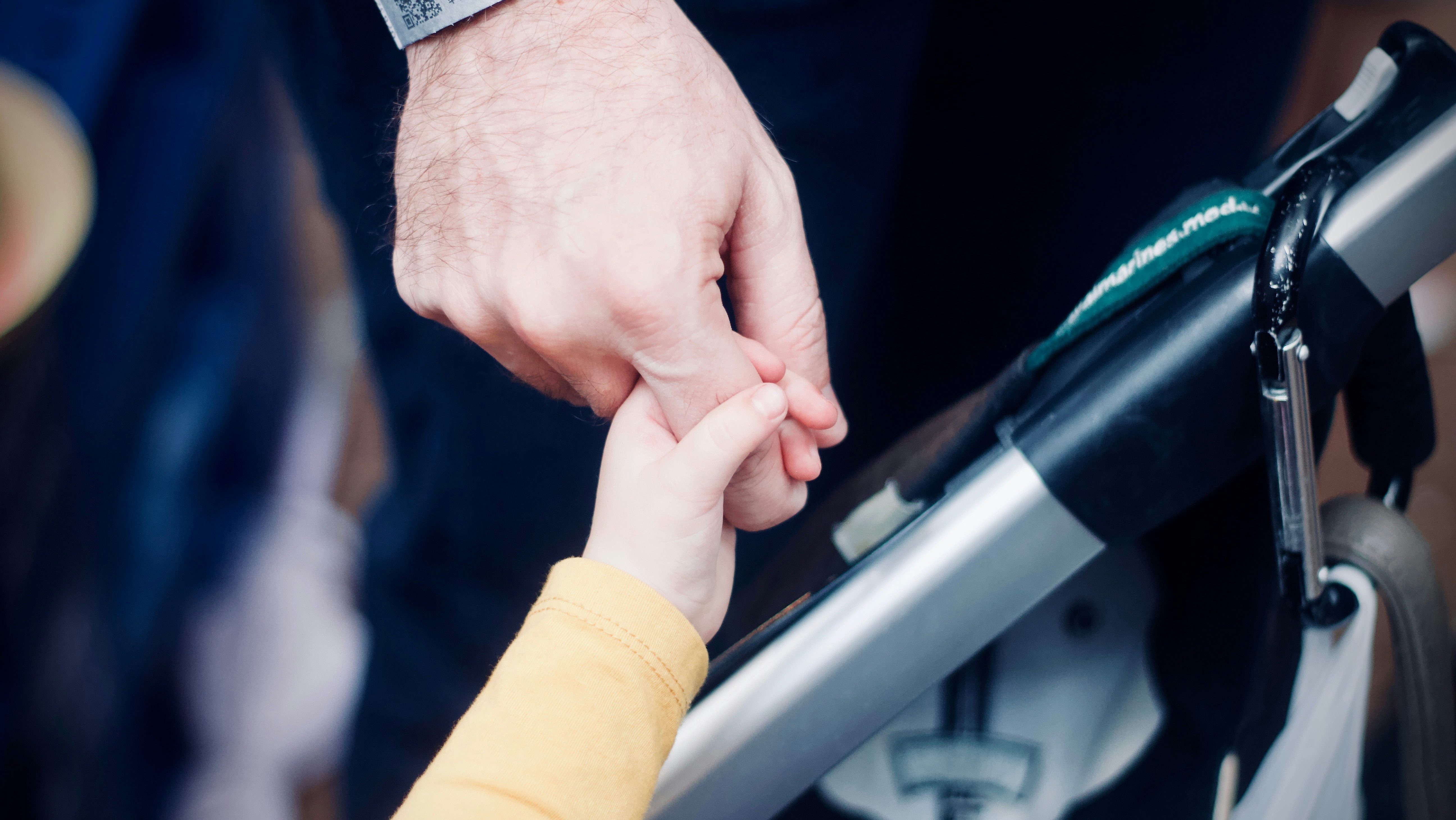
One in four children in the UK live in poverty.
The cost of living is far from over, Barnardo’s has warned, with a quarter of parents still struggling to provide enough food for their children.
This equates to 3.4 million children whose parents have struggled to afford food in the past year, an increase of 5% from October 2022, new research by the charity found.
With energy prices expected to rise by 10%, the charity said difficulties would continue. Its polling also found two in 25 parents – or 8% – used a food bank in the past 12 months.
“We know families have to make gut-wrenching choices every day, prioritising feeding their children and heating their homes over buying other essential items,” said Lynn Perry, chief executive of Barnardo’s.
“Many families can’t wait any longer for support and next month’s budget is an opportunity for the government to take bold steps, like ending the unfair two-child limit on benefits.”
Perry’s comments came as the boss of Aldi UK said customers were “trading up” to premium products as inflation tailed off.
As the Labour government says “hard choices” are needed on the economy, battles rage over the support on offer to those living in poverty.
It extended the household support fund this month, with the temporary extension welcomed but branded a “last-minute, poorly designed sticking plaster”.
Under pressure to end the two-child benefits limit, the government has established a Child Poverty Unit as part of what Keir Starmer called an “ambitious child poverty strategy”.
Calling the two-child limit a “sibling penalty”, Perry said ending it could lift 490,000 children out of poverty.
“We know from our frontline work that this policy penalises children who happen to have more than one brother or sister and means some families can’t put food on the table or the heating on when it is cold,” said Perry.
“The chancellor should take the opportunity in next month’s budget to commit to a long-term scheme for local crisis support and lift the two-child limit on benefits.”
Research by the Trussell Trust found existing benefits are failing those in poverty, with 1.6 million people claiming universal credit also using food banks.
Over two-thirds of households claiming the benefit had gone without essentials such as food in the previous six months.
One in four children in the UK live in poverty, with the impact of this poverty making children shorter, fatter, and sicker.
Cost of living crisis is over? Try telling that to millions of Brits struggling to feed their kids
Millions in the UK still face cost of living woes
Lynn Perry
11 Sep 2024

Image: Unsplash
Share
News this week that wagyu steak and premium cheese are making their way into more shopping baskets might signal to some that the cost of living crisis is on its way out.
But although lower inflation means some shoppers can afford to treat themselves more, the fact remains the crisis continues to have a devastating impact for millions of children and families across the UK.
New research published by Barnardo’s today (11 September) shows a quarter of parents in Great Britain with children aged 18 and under say they’ve struggled to provide sufficient food for their children over the past 12 months. Why the natural human failure of imagination stops us from relieving children’s suffering
I’m a single mum living in poverty. Worrying about how it affects my children keeps me up at night
This is up 5% since October 2022 and starkly illustrates that the cost of living crisis is far from over.
At Barnardo’s, we know families have to make gut-wrenching choices every day, prioritising feeding their children and heating their homes over buying other essential items.
This is set to become even worse with energy prices about to rise by as much as 10%.
Our new report Empty plates and cold homes: What it’s like to grow up in poverty in 2024 estimates that there could be around 3.4 million children – three times the population of Birmingham – whose parents have struggled to provide sufficient food for them over the past 12 months.
Two in 25 parents (8%) surveyed by Barnardo’s and YouGov said they’ve had to use a food bank in the last year.
All over the country there are people like Sonia from Carlisle who, come the end of the month, has to rely on food banks to feed her two boys and prioritises food and heating over other essentials like Wi-Fi for her sons’ schoolwork.
The government’s new child poverty taskforce, announced in the summer, is a glimmer of hope for Sonia and the thousands of families Barnardo’s supports. It’s a tangible opportunity to find lasting solutions to these issues, and we hope to work closely with ministers to tackle the underlying causes of poverty.
But many families can’t wait any longer for support and next month’s budget is an opportunity for the government to take bold steps, like ending the unfair two-child limit on benefits.
We know from our frontline work that this policy penalises children who happen to have more than one brother or sister and means some families can’t put food on the table or the heating on when it is cold.
Ending this ‘sibling penalty’ could immediately lift 490,000 children out of poverty, granting struggling families another £3,455 per third or subsequent child in 2024/25.
Currently, more than one in four children in the UK lives in poverty – that’s nine in every classroom – because too many families are struggling to make ends meet.
It can mean going to school hungry and returning to a cold home.
It affects children’s physical and mental health well into adulthood and can affect them for the rest of their lives.
The average height of a five-year-old in the UK has slipped 30 places in the world rankings due to poor diet and living standards. The cost of living crisis is exacerbating the impact of poverty on children’s health, leading to more children needing hospital treatment for issues including malnutrition and poor oral health.
Even before the cost of living crisis, there were already strong links between poverty and child health, with children living in poverty more likely to require hospital admission, 72% more likely to be diagnosed with a long-term illness, or have other conditions like poor mental health.
Families facing the struggle to heat their homes, put food on the table and provide essentials for their children over winter at least have a safety net in the form of the household support fund, which was due to end later this month.
The announcement last week by the secretary of state for work and pensions of another extension was a welcome one. But what’s desperately needed is a long-term settlement and strategy for local crisis support after the new extension ends in April 2025.
Every year Barnardo’s supports thousands of struggling children and families across the UK to access the basics like food, fuel, beds, suitable accommodation and longer-term financial advice.
We help them keep the power on and the fridge stocked so they can be safer, happier, healthier and more hopeful.
But charities like Barnardo’s can only do so much – the government needs to take urgent action to end child poverty.
The chancellor should take the opportunity in next month’s budget to commit to a long-term scheme for local crisis support and lift the two-child limit on benefits.
Families in crisis need and deserve urgent action and sustainable solutions.
Lynn Perry is chief executive of Barnardo’s.
